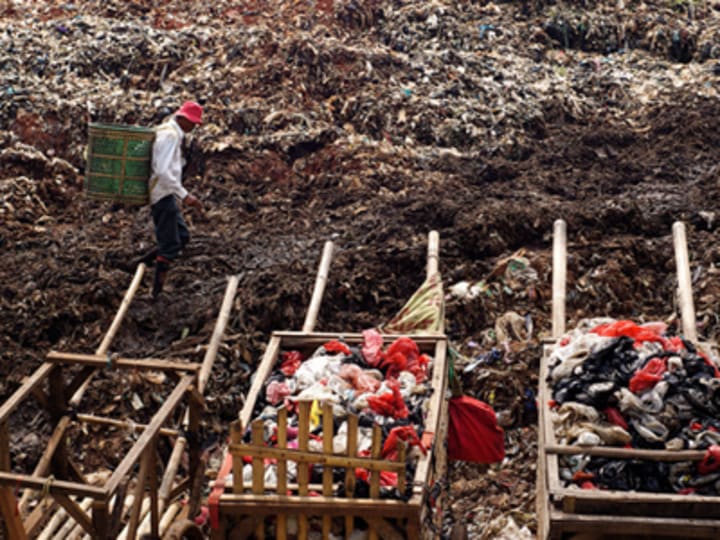
Garbage and healthcare don’t normally go together — but in Indonesia, they can serve as the building blocks for inclusive and sustainable development through innovation.
In a revolutionary program to promote healthcare in different parts of the country, 23-year old doctor Gamal Albinsaid started the Garbage Premium Insurance Clinic Program, allowing people to avail of healthcare treatment and benefits in exchange for trash.
Albinsaid recently won the Indonesian Social Innovator Award, an AusAID initiative to harness ideas from people to transform and develop the lives of communities across the archipelago.
“Dr. Albinsaid was moved by the fact that the under served communities in his hometown are not able to pay for healthcare services,” said Widita Kustrini from Yayasan Kopernik, a local organization that promoted innovative development solutions that created the competition.
According to Indonesia’s health ministry, only around 33 percent of the population were covered by the national health insurance scheme in 2010, something that this new program hopes to address and thus complement the various development efforts being implemented in this area across the country.
Health and environment
So how does garbage promote healthcare development?
The program is trying to hit two birds with one stone, Kustrini told Devex: “[Aside from health coverage], waste management was also a subject that [Dr. Albinsaid] thought needed careful attention before it became an unsolvable matter.”
“Combining these two problems, [the doctor] came up with the Garbage Premium Insurance Clinic,” she explained. “Why not use the abundance of refuse that each household has and convert it into healthcare services that are lacking in the same community?”
But how does it work?
Health insurance is given to members who, in turn, pay the premium with garbage with a value of IDR10,000 ($0.85) a month and deposit it in the local clinic. The clinic then hands over the trash to a “garbage bank” to receive the equivalent in cash. The monetary value of the members’ garbage contribution entitles them to healthcare including standard checkups and recovery treatment.
The award-winning program is cutting-edge in that it becomes self-sustainable in a very a short period of time. External donors were initially tapped to build the clinic, but after getting just 40 community members to register in the first six months, the program became able to cover all its costs, and over the past three years expanded to four more clinics in East Java province.
Effects of aid cuts
The awards and the support for the project come at a crucial time, especially in light of recent events relating AusAID and the new Australian government, which has slashed the foreign aid budget and “integrated” the aid agency into the foreign ministry.
Asked about the possible effects of the cuts to support to AusAID-funded programs in Indonesia, Kustrini said they will probably slow down the process of development, but not kill it completely.
Foreign aid, she continued, should not be the main life source of local NGOs, which must learn to stand on their own feet in the future. International aid agencies can provide mentoring and access to related networks for better results — but they are there to learn from, not be dependent on forever.
“There are other creative ways to empower Indonesians and we are learning from people from other developing countries who have supported innovation with the assistance of local NGOs,” said Kustrini. “If we, or anyone at all, keep on encouraging people to come up with innovative solutions for social problems … and provide them with the right tools, sustainability and inclusive development will be easier to achieve.”
Read more development aid news online, and subscribe to The Development Newswire to receive top international development headlines from the world’s leading donors, news sources and opinion leaders — emailed to you FREE every business day.




